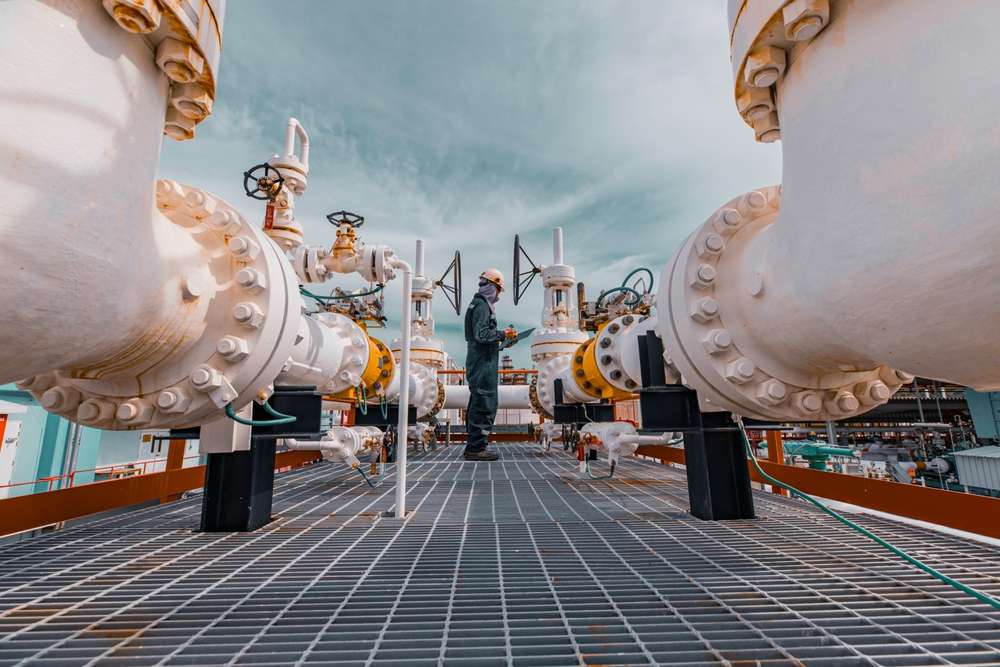Navigating Careers in Offshore Oil and Gas: A Guide
Discover the exciting world of offshore oil and gas careers, where adventure meets opportunity. From remote locations to cutting-edge technology, this industry offers unique challenges and rewards. Learn about diverse job roles, essential qualifications, and future prospects in this comprehensive guide to launching your offshore career.

The offshore oil and gas sector presents a dynamic and rewarding career path for those seeking both challenge and opportunity. This guide explores the diverse landscape of offshore jobs, essential qualifications, and the industry’s future outlook.
Diverse Career Opportunities
The offshore industry boasts a wide array of roles crucial to energy production:
-
Drilling Engineers: These professionals oversee the complex process of extracting oil and gas from beneath the ocean floor.
-
Marine Specialists: Experts in vessel operations and offshore logistics ensure smooth operations at sea.
-
Subsea Engineers: These technicians design, install, and maintain underwater equipment vital for extraction.
-
Environmental Coordinators: Tasked with minimizing ecological impact, they ensure compliance with environmental regulations.
-
Offshore Medics: Providing essential healthcare services in remote locations, these professionals are critical for crew safety.
-
Instrument Technicians: Responsible for maintaining and calibrating sophisticated measurement and control systems on platforms.
This diverse range of positions highlights the multifaceted nature of the offshore oil and gas industry.
Qualifications and Requirements
Securing a position in the offshore sector typically involves meeting specific criteria:
-
Educational Background: Many roles require a bachelor’s degree in fields such as engineering, geology, or environmental science. Technical positions may need specialized vocational training.
-
Safety Certifications: All offshore workers must complete rigorous safety training, including sea survival and emergency response courses.
-
Physical Fitness: Given the demanding nature of offshore work, candidates must pass comprehensive medical examinations.
-
Industry Experience: While entry-level positions exist, advanced roles often require several years of relevant experience.
-
Specialized Certifications: Depending on the position, industry-specific certifications from organizations like OPITO may be necessary.
Challenges and Rewards
Offshore careers come with unique aspects that set them apart:
Challenges: - Extended periods away from home, often on rotational schedules - Exposure to harsh marine environments and potential safety hazards - Limited personal space and social interactions while on duty - High-pressure work situations requiring strict adherence to safety protocols
Rewards: - Lucrative compensation packages, often surpassing onshore equivalents - Accelerated career progression due to the specialized nature of work - Extended off-periods between rotations, allowing for personal pursuits - Opportunity to work with state-of-the-art technology in a global industry
Future Outlook
The offshore job market is influenced by various factors, including: - Global energy demand and oil prices - Technological advancements in extraction and production - Increasing focus on renewable energy sources - Environmental regulations and sustainability initiatives
Emerging trends include: - Growing emphasis on automation and digitalization - Rising demand for expertise in offshore renewable energy - Continued focus on environmental protection and sustainable practices - Potential expansion into new geographical areas as technology advances
Salary Expectations
Offshore positions are known for competitive compensation, reflecting the demanding nature of the work:
| Position | Entry-Level Range | Experienced Range |
|---|---|---|
| Roughneck | $45,000 - $65,000 | $65,000 - $85,000 |
| Subsea Engineer | $75,000 - $105,000 | $105,000 - $185,000 |
| Offshore Electrician | $65,000 - $85,000 | $85,000 - $125,000 |
| Environmental Coordinator | $70,000 - $100,000 | $100,000 - $150,000 |
| Offshore Installation Manager | $110,000 - $160,000 | $160,000 - $260,000 |
Note: These figures are estimates and can vary based on factors such as company, location, and market conditions. Additional benefits often include housing allowances, travel expenses, and performance bonuses.
Launching Your Offshore Career
To embark on an offshore oil and gas career:
-
Pursue Relevant Education: Obtain a degree in engineering, environmental science, or a related field, or complete vocational training for technical roles.
-
Gain Industry Experience: Seek entry-level positions or internships, even in onshore operations initially.
-
Obtain Safety Certifications: Complete necessary safety training, such as BOSIET.
-
Build a Professional Network: Attend industry events and join professional organizations to connect with industry insiders.
-
Demonstrate Flexibility: Be open to starting in entry-level positions and working in challenging locations.
-
Stay Informed: Keep abreast of industry trends, technological advancements, and regulatory changes.
The offshore oil and gas industry offers a unique blend of challenge, innovation, and reward. For those seeking an adventurous career path with significant growth potential, offshore work presents an exciting opportunity. As the energy landscape evolves, adaptable professionals with a strong commitment to safety and continuous learning will find themselves well-positioned for success in this dynamic field.






